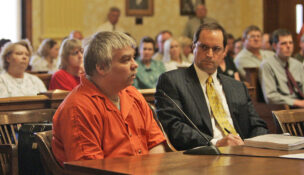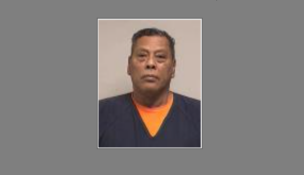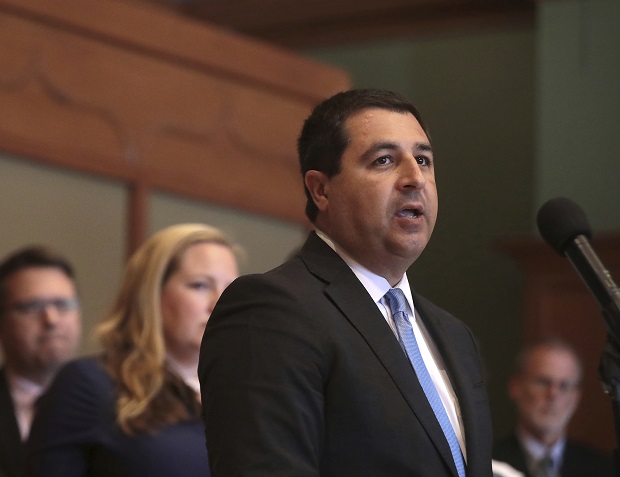Minn. restitution ruling raises questions
By: BARBARA L JONES//January 18, 2010//
It was a highly unusual move when a Minnesota judge, U.S. District Court Judge Patrick Schiltz, recently issued a written order chiding federal prosecutors for failing to request restitution in a child-pornography possession case.
A federal law, 18 U.S.C. sec. 2259, requires a court to order restitution in the full amount of a victim’s losses in cases involving sex crimes against children — although typically prosecutors haven’t sought it in possession cases. In his Jan. 4 order in U.S. v. Buchanan, Schlitz has asked prosecutors to explain why it shouldn’t be granted in that case. (One of the alleged pornography victims had requested about $3.5 million in restitution. Her request includes costs for future psychological care, future lost income and attorney fees.)
Less than 30 days earlier, a federal judge in Texas denied the government’s request for approximately $3.5 million in restitution for a child victim, saying the government did not establish proximate cause.
The Minnesota case involved the same alleged victim as the Texas case, “Amy,” a 19-year-old woman who was abused as a child and whose image was then placed in a pornographic series on the Internet. Amy has filed approximately 250 restitution requests against different defendants across the country. The results of her suits have been mixed. Judges in Florida and Illinois each awarded more than $3 million in restitution, both of which orders are on appeal. However, most judges have declined to award restitution.
There are more questions than answers about restitution for victims of pornography, particularly in simple possession cases, lawyers say.
“Restitution is an area with which the Department of Justice has been grappling for the last several years,” said Jeanne Cooney, a spokesperson for the U.S. attorney in Minneapolis. “There are a lot of issues to be worked out before we can respond as effectively as we should.”
Nonetheless, prosecution of child-porn cases remains a top priority for the Department of Justice, Cooney said. The DOJ sponsors Project Safe Childhood, a national initiative to combat sexual exploitation of children, particularly via the Internet. In an interview not long after he took office last year, U.S. Attorney B. Todd Jones told Minnesota Lawyer that he hopes to soon add another prosecutor in Minnesota to work specifically with PSC.
Questions raised
Schiltz pointed out in his recent order that federal law requires a court to order restitution, regardless of any other compensation the victim has received or the defendant’s ability to pay.
“Given the clear Congressional mandate that those convicted of child-pornography offenses pay restitution to their victims, the Court will no longer accept silence from the government when an identified victim of a child-pornography offense seeks restitution,” Schiltz said, ordering the government to file its brief on the restitution issue by Jan. 29.
Amy’s case is unusual because although she uses a pseudonym her identity is known. Often the children in the images involved in a possession case can’t be identified, either because their faces aren’t photographed or because the photos have been altered.
But even if a child’s identity is known, that leaves the question of how prosecutors establish how many times a particular image has been viewed and by whom. Then there’s the thorny question of to what extent one viewer is responsible for the financial harm to a victim.
Historically, the amount of damages has been clear-cut in most cases where restitution has been sought, according to former U.S. Attorney Thomas Heffelfinger. For example, the amount a particular victim has lost in a fraud scheme is clearly the amount of restitution to which he or she is entitled. But in porn cases, the damages aren’t quite as clear.
Even though sec. 2259 is very liberal in what it allows for damages, the amount of those damages has to be provable, said Heffelfinger. Heffelfinger also said he has never in his career been involved in a claim for restitution where the losses were not strictly pecuniary in nature.
Minneapolis criminal defense lawyer Thomas Gallagher said that restitution is traditionally used only to reimburse out-of-pocket costs.
“We have a civil court to litigate civil liability. It’s been a pretty bright line, and there are reasons for that separation,” Gallagher told Minnesota Lawyer. He also pointed out that defendants in child-porn cases can be charged separately for each image they possess. Some are caught with thousands of images, making their potential restitution amounts almost incalculable.
Proximate problems
To First Assistant Federal Public Defender Andrew Mohring, the thorniest question is one of proximate cause. “All the cases require proximate cause [and] it’s been very difficult to establish,” he told Minnesota Lawyer. “There has been an enormous amount of litigation around the country.”
Proximate cause was the cause of Amy’s loss in the Texas case. In that case, U.S. v. Paroline, the government argued that it had shown that the defendant proximately caused more than $3 million in damages to Amy. (Amy’s request for more than $3 million in all her cases represents her view that every defendant who has viewed the images of her is jointly and severally liable for the total amount.)
“The Court’s sympathy does not dispense with the requirement that the Government satisfy its burden of proving the amount of Amy’s losses proximately caused by [the defendant’s] possession of her two images,” the Texas court said.
The Texas judge observed in a footnote, “While Congress was obviously well intended in attempting to create a statutory framework to help compensate victims of child pornography, it has unfortunately created one that is largely unworkable in the context of criminal restitution.”
The judge suggested that fines payable to a national center that could act as a trustee to provide funds for counseling would do more to help victims than the unworkable restitution provisions of the statute.
Legal News
- Steven Avery prosecutor Ken Kratz admits ‘mistakes were made’
- Colombian national extradited to Milwaukee faces International narcotics-trafficking conspiracy charge
- MPD: Milwaukee homicides down nearly 40 percent compared to last year
- EVERS: Republican lawmakers No-Show at special meeting to release statewide PFAS funding, stabilize healthcare access
- Wisconsin ICAC Task Force conference on Missing and Exploited Children highlights increase in sextortion cases
- More than 300 Wisconsin officers back in law enforcement after being fired or forced out
- Former Trump staffer who said to ‘fan the flame’ after 2020 loss hired to lead Wisconsin GOP
- Gov. Evers appoints David Casey to Serve as DOR Secretary
- Former Marine sentenced for Molotov Cocktail attack against Planned Parenthood Clinic
- ABA names 34th Annual Margaret Brent Women Lawyers of Achievement Awards honorees
- FBI launches criminal investigation into Key Bridge collapse
- Man charged in slaying after woman’s leg found at Milwaukee-area park
WLJ People
- Power 30 Personal Injury Attorneys – Russell Nicolet
- Power 30 Personal Injury Attorneys – Benjamin Nicolet
- Power 30 Personal Injury Attorneys – Dustin T. Woehl
- Power 30 Personal Injury Attorneys – Katherine Metzger
- Power 30 Personal Injury Attorneys – Joseph Ryan
- Power 30 Personal Injury Attorneys – James M. Ryan
- Power 30 Personal Injury Attorneys – Dana Wachs
- Power 30 Personal Injury Attorneys – Mark L. Thomsen
- Power 30 Personal Injury Attorneys – Matthew Lein
- Power 30 Personal Injury Attorneys – Jeffrey A. Pitman
- Power 30 Personal Injury Attorneys – William Pemberton
- Power 30 Personal Injury Attorneys – Howard S. Sicula











